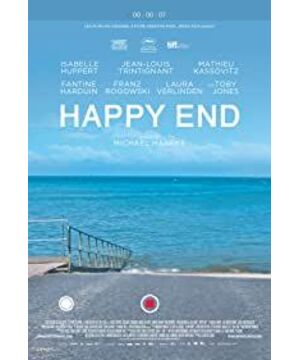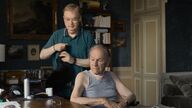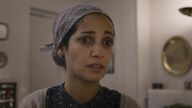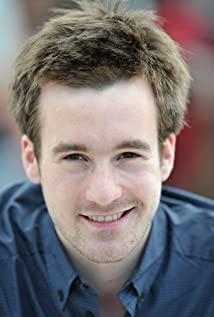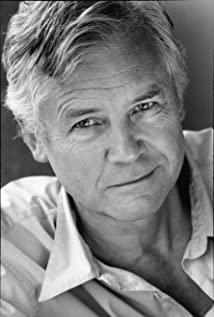Not long ago, I watched Lumiere and the Forty Directors. It was a very interesting feature film. The film crew invited 40 film directors from around the world to use the Lumiere Brothers cameras to complete a short film according to the rules. Haneke is in it. He was asked why the film was made, and he said, don't ask why the centipede walks, or it will stumble. When asked again whether the movie will die, he asks: Is there anything that will not die? Haneke is such a pessimist. The way he speaks, the silver beard, the facial expressions, it's almost his cinematic style. Calm and restrained, mean and cruel. In his new work "Happy Ending", Mr. Ha has continued the consistent style, and there is no lack of innovation in the language of the film. This is a film about the daily life of a middle-class family and strips out the sin and evil behind the characters. 1. The characters in Haneke's family films are indifferent to each other, and Haneke has almost no emotion for his own characters. The puns inside and outside the play constitute a unique viewing experience for Haneke's films. Different from oriental family movies, which are fragments of life, the world is warm and cold, Haneke's family theme is to peel off morality layer by layer and show us those cruel things coldly. Unlike typical American movies about middle-class families (take "American Beauty" as an example), Haneke's movies don't need drama, dreamy surreal designs, and heart-piercing dramas. No need for anger and destruction. Haneke speaks of the middle class, not disappointed, criticized, condemned, but presented and then ignored. He builds a family's five main characters, but hardly tries to portray them. A mode of scatter narrative, interspersed with viewpoints back and forth between them. The distracted attention makes you want to sleep, but at the end, you slap you and wake you up. Just as the old man said to the little girl at the beginning, "Welcome to this big bad family." This seemingly rich, diverse and tolerant big family, in fact, everyone has an unspeakable inner world. These hidden secrets are the essence of life, the unavoidable problems of this class and this contemporary society. 2. Everyone is a wicked half-paralyzed old man who once killed his wife. The little girl who seems to be inexperienced once poisoned her classmates and poisoned her mother. The father, who has been married for a second time, still wants to be dissatisfied, and plans to elope with the object of online dating. The mother and son, who run a construction company, got into trouble with the workers because of an engineering accident. Some critics will point out that this structure can seem too straightforward, with a bluntness that piles up all kinds of typical problems. But Haneke's handling is not so straightforward. He took out a lot of the scenes of succession to explain. Instead, it uses dialogue scenes as a unit. In the seemingly casual and ordinary dialogue, there are various connected information hidden. This achieves a fragmented narrative, which is more in line with the cognition of our lives, because Haneke has removed an omniscient perspective to some extent, and we do not know much more than the characters in the movie. But viewers can easily lose so much information that they think the plot isn't very coherent. There are several dialogue scenes that are brutal and funny. One is the conversation between the old man and the barber. He wanted the barber to help him kill himself. His indifference to death is an interesting contrast to the barber's clumsy response. In another dialogue, the old man and the little girl exchanged secrets. It was in this scene that I understood that everyone is a villain, a murderer of the weak. When the son brought a group of black refugees into his mother's engagement wedding. The various characters at the wedding panicked at the move, feeling indecent while having to seat them. There is discrimination, there is conscience, and there is hypocrisy. This banquet is inevitably reminiscent of the whole world, the relationship between different countries, nothing more than that. 3. The camera lens of the mobile phone is the slow-moving panning lens in the real cold-eyed movie. The characters move from near to far, and then from far to near. The camera, on the other hand, stayed where it was, just staring at the characters, watching them go back and forth. Straight traverse, closely following the movement of the characters, and maintaining a considerable distance. The abrupt insertion of the live broadcast screen of the mobile phone, and then quickly pulled away, returning to the life of a pool of stagnant water, back to the cold image of Haneke. At the beginning of the film, Haneke used several live footage recorded on the phone in vertical screen. (Then wondered if he was on the wrong set.) The woman in the picture is living the same life. The daughter who recorded the live broadcast on the screen sent out cold explanations and comments. The application of this live footage directly constitutes the echo with the ending and becomes the key information to unlock the little girl's secret. Haneke also borrowed footage from video surveillance and attempted acceleration, rewinding, and jump-cutting. Haneke's earliest works are known for their experiments with speed and reversal. In addition, there are some TV news footage, online videos, and social network web interface. The use and deconstruction of these images in the contemporary context is a very powerful attempt to peep and dissect life. As the story draws to a close, the old man tries to commit suicide, and the sea drowns half of his body. The old man stared at the sea water, and the little girl stared at the old man. Suddenly, he took out his mobile phone and opened the video, which coincided with the silent mobile phone video images at the beginning of the film. A few strokes, but infinite desolation and despair. Everyone rushed up to save the old man. Seeing that he was rescued, this was just one of many suicides. So "happy ending" is not just an irony, but a fantasy that does not exist and cannot be realized.
View more about Happy End reviews


